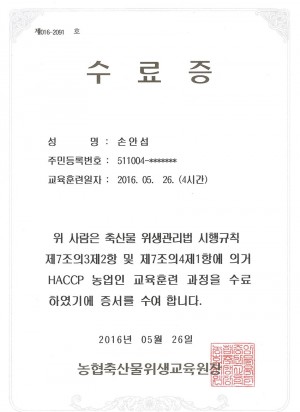[등심]Six Reasons You Will Never Be Able To Adult ADHD Assessment In London …
16
2023.01.24 06:37
짧은주소
본문
If you are a London resident seeking an adult ADHD assessment there are a few options. AADD's website contains a short list with adult Adhd Centre London (Https://Www.Iampsychiatry.Uk/Adult-Adhd-Assessments-And-Treatments/) specialists. You can do a quick Google search to locate a wide range of options. Although your GP can refer you to an outside doctor, it is often more cost-effective to go private. If you're not sure of who to see then the Maudsley referral could be the best option.
Treatment options for adults with ADHD
ADHD sufferers usually have difficulty getting up in the morning and maintaining a consistent schedule. Sleep deprivation can cause an energy loss and increase the symptoms of ADHD. ADHD symptoms can be reduced with an established sleep routine. Try to get up and go to bed at the same time each day. Make sure the bedroom is dark and avoid drinking later in the day. ADHD sufferers may reduce their consumption of caffeine. Some people might not be able caffeine completely.
Cognitive behavioral therapy can help people change negative thought patterns and behavior. It helps people to change their "all or nothing" beliefs and builds self-esteem. It can also help with dealing with stress. The purpose of cognitive behavior therapy is to boost the self-esteem of the individual. A combination of cognitive behavioral therapy and medication is frequently employed to treat ADHD. Many people with ADHD can benefit from both strategies. Here are some of the most frequently used forms of therapy that are available to adults.
In addition to psychotherapy and medications in addition, many adults suffering from ADHD have the characteristics of autism spectrum disorders and learning disorders. They can talk to their healthcare provider about treatment options. They can also do an assessment themselves to determine if a particular treatment is right for them. It is also advisable to talk with your healthcare professional about the various treatment options for people with ADHD. You can always try a different treatment alternative in the event that one of these options does not work.
Adult ADHD treatment is usually carried out using a multimodal strategy. A multimodal approach to ADHD treatment might include a combination of behavioral therapy, exercise, diet, as well as other complementary treatments. The best treatment strategy should be multimodal, combining all of these strategies to boost brain function and reduce symptoms. It takes patience, organization, persistence, and time to find the right treatment for you. After you've determined which treatment options are suitable then you can talk with your physician to determine the best option. If the medication you are using isn't working for you, try some other options, such as behavioral therapy, which will help you change your behavior.
In addition to medication, one should also consider implementing healthy lifestyle changes, such as eating a healthy diet. ADHD patients tend to skip meals and eat snacks too often. This can cause more symptoms of ADHD as well as their emotional and physical well-being. Therefore, it's crucial to ensure that your diet has the proper amount of carbohydrate complex and protein for optimum brain functioning. Remember to include healthy fats, foods and nutrients like fish oil and Vitamin D.
ADHD symptoms
While ADHD is an extremely common childhood disorder, adult symptoms can be more severe, and may interfere with daily life. Disorganization, last-minute demands and stress are all indications of adult ADHD. If left untreated, adult ADHD can cause wide-ranging effects. Although diagnosis is not guaranteed but adult ADHD can also trigger other mental health issues and behavioral problems like depression, anxiety and other mental disorders. To determine whether you are suffering from adult ADHD go to your doctor today.
To be considered to have adult ADHD you must show at least five of the signs listed above for a minimum period of six months. Symptoms of adult ADHD are usually incongruous with an adult's developmental stage. Your doctor or healthcare professional may suggest medication or therapy for the condition after it's diagnosed. Medication for adult ADHD could include stimulants, which increase levels of dopamine and norepinephrine in the brain. Both substances help to focus and think, and therefore medication can be very effective in treating ADHD.
Untreated ADHD can cause issues in relationships. People suffering from ADHD may be self-conscious, or develop an unhealthy pattern of relationships. This disorder is difficult to identify. In addition, those with ADHD often blame their symptoms on character flaws, depression, and anxiety. Adult ADHD symptoms may not have been recognized in childhood. However there is a need for more research to determine if adult ADHD is a condition that affects adults.
Adult ADHD is often not diagnosed because of comorbid conditions, such as depression and anxiety, Adhd centre London and can be hidden by a variety of other issues. It can also cause relationship problems and other negative outcomes. A diagnosis is essential for an individual's long-term health. With a precise diagnosis, you can take the necessary steps to improve your life. It is important to seek medical attention immediately if you suspect that you might be suffering from adult ADHD.
As with any condition that is diagnosed, adult ADHD symptoms may take on a different form. Some people may be easily distracted, talkative, or hyperactive. Others may have trouble waiting their turn, are impulsive, or a less attentive attention span. For those with ADHD it may be hard to concentrate. Adult ADHD symptoms can be harder to identify because they are less apparent and can behave differently than children.
Structured interviews
The first step to the process of completing an ADHD assessment is to identify the behavioural characteristics of the individual. Individuals who are suspected of ADHD are confronted with a series of inquiries about their lives and behavior. These questions can be separated into two parts: cognitive validity as well as performance validity. The cognitive measures comprise a series of tests for cognitive ability that assess how well individuals perform on various tasks, whereas the performance validity test is a questionnaire that assesses the ability of an individual to perform certain tasks under given conditions. The clinical assessment process requires the information obtained from these tests.
When determining the cause the physician will examine the developmental history of the individual. ADHD symptoms are often disguised by issues with development. One can be referred to an evaluation by a physician if they experience new symptoms that are not typical of ADHD. If the patient has experienced these symptoms over a long period of time, it's likely that they have an ADHD disorder.
In addition to the interview in a clinical setting the clinician could also collect information from a close family member or a friend. To collect reliable informants, the person must have been known to the informant for a considerable period of time. This source should be added to the self-reported data. In addition, the report of the informant from childhood could be instructive. This is a great method of determining the existence of a disorder.
ADHD can be caused by psychiatric problems. Other conditions that may increase the severity of ADHD include bipolar disorder, eating disorders as well as substance use. These conditions can complicate the diagnosis. So, psychiatric co-morbidity can be an important factor when evaluating the diagnosis of ADHD. The therapist may recommend appropriate treatment strategies if the child is suffering from a learning impairment.
The SIRS-2 and OS scales aren't appropriate to detect faked adult ADHD. They could provide the basis for a test that is specific to the disorder which is a test that identifies symptoms specific to ADHD. Items like item 135 are able to diagnose ADHD more effectively than other tests. The only exceptions to this rule are the participants who feign the disorder and those who don't.
Antidepressant therapy
Although there aren't enough studies to show that antidepressants are effective in treating ADHD in adults However, there is evidence that they relieve symptoms. However some studies have proven that antidepressants might not be as effective as stimulants. The FDA has concluded that antidepressants increase the risk of suicidal behavior in children. Antidepressants also boost brain levels of neurotransmitters, messenger chemicals and other neurotransmitters. Studies have shown that antidepressant therapy may reduce anger, hyperactivity, and aggression in children. Moreover, it may reduce disruptive behavior.
ADHD patients are more likely to suffer from anxiety and depression. This co-occurring disorder is more prevalent in certain genetic subsets. Conduct disorders can also be seen in association with ADHD and adhd centre London are treated differently. However, understanding the root cause of behavior-related issues is crucial in improving the quality of life for adult ADHD patients. For both mood disorders as well as conduct disorders, a diagnosis by a doctor can be crucial.
Adult ADHD is a complex disorder that can be treated using antidepressant therapy. The effectiveness of this treatment varies from person to. For the hyperactive or impulsive behaviors, tricyclics as well as monoamine oxidase inhibitors are both effective. Desipramine and bupropion aren't recommended for the treatment of tics. Apathy in the frontal region can also be caused by serotonin selective reuptake inhibitors (SSRIs).
To improve function primary antidepressants can be coupled with stimulants like bupropion. To treat adults with ADHD, a doctor may prescribe a combination antidepressants and stimulants. These are more effective but can have negative side effects. Therefore, if your first step of treatment doesn't cure the comorbidity problem treatments that are non-stimulant can be used to treat the ADHD condition.
Treatment with antidepressants for adults with ADHD has a number of negatives. It is crucial to talk to an expert medical professional who is skilled in treating adults with ADHD. Psychotherapy is an excellent option. However, you must be aware of the risks and drawbacks to any medication. A physician should also be aware of the advantages and dangers of ADHD medication and work with you to establish a daily schedule.
Treatment options for adults with ADHD
ADHD sufferers usually have difficulty getting up in the morning and maintaining a consistent schedule. Sleep deprivation can cause an energy loss and increase the symptoms of ADHD. ADHD symptoms can be reduced with an established sleep routine. Try to get up and go to bed at the same time each day. Make sure the bedroom is dark and avoid drinking later in the day. ADHD sufferers may reduce their consumption of caffeine. Some people might not be able caffeine completely.
Cognitive behavioral therapy can help people change negative thought patterns and behavior. It helps people to change their "all or nothing" beliefs and builds self-esteem. It can also help with dealing with stress. The purpose of cognitive behavior therapy is to boost the self-esteem of the individual. A combination of cognitive behavioral therapy and medication is frequently employed to treat ADHD. Many people with ADHD can benefit from both strategies. Here are some of the most frequently used forms of therapy that are available to adults.
In addition to psychotherapy and medications in addition, many adults suffering from ADHD have the characteristics of autism spectrum disorders and learning disorders. They can talk to their healthcare provider about treatment options. They can also do an assessment themselves to determine if a particular treatment is right for them. It is also advisable to talk with your healthcare professional about the various treatment options for people with ADHD. You can always try a different treatment alternative in the event that one of these options does not work.
Adult ADHD treatment is usually carried out using a multimodal strategy. A multimodal approach to ADHD treatment might include a combination of behavioral therapy, exercise, diet, as well as other complementary treatments. The best treatment strategy should be multimodal, combining all of these strategies to boost brain function and reduce symptoms. It takes patience, organization, persistence, and time to find the right treatment for you. After you've determined which treatment options are suitable then you can talk with your physician to determine the best option. If the medication you are using isn't working for you, try some other options, such as behavioral therapy, which will help you change your behavior.
In addition to medication, one should also consider implementing healthy lifestyle changes, such as eating a healthy diet. ADHD patients tend to skip meals and eat snacks too often. This can cause more symptoms of ADHD as well as their emotional and physical well-being. Therefore, it's crucial to ensure that your diet has the proper amount of carbohydrate complex and protein for optimum brain functioning. Remember to include healthy fats, foods and nutrients like fish oil and Vitamin D.
ADHD symptoms
While ADHD is an extremely common childhood disorder, adult symptoms can be more severe, and may interfere with daily life. Disorganization, last-minute demands and stress are all indications of adult ADHD. If left untreated, adult ADHD can cause wide-ranging effects. Although diagnosis is not guaranteed but adult ADHD can also trigger other mental health issues and behavioral problems like depression, anxiety and other mental disorders. To determine whether you are suffering from adult ADHD go to your doctor today.
To be considered to have adult ADHD you must show at least five of the signs listed above for a minimum period of six months. Symptoms of adult ADHD are usually incongruous with an adult's developmental stage. Your doctor or healthcare professional may suggest medication or therapy for the condition after it's diagnosed. Medication for adult ADHD could include stimulants, which increase levels of dopamine and norepinephrine in the brain. Both substances help to focus and think, and therefore medication can be very effective in treating ADHD.
Untreated ADHD can cause issues in relationships. People suffering from ADHD may be self-conscious, or develop an unhealthy pattern of relationships. This disorder is difficult to identify. In addition, those with ADHD often blame their symptoms on character flaws, depression, and anxiety. Adult ADHD symptoms may not have been recognized in childhood. However there is a need for more research to determine if adult ADHD is a condition that affects adults.
Adult ADHD is often not diagnosed because of comorbid conditions, such as depression and anxiety, Adhd centre London and can be hidden by a variety of other issues. It can also cause relationship problems and other negative outcomes. A diagnosis is essential for an individual's long-term health. With a precise diagnosis, you can take the necessary steps to improve your life. It is important to seek medical attention immediately if you suspect that you might be suffering from adult ADHD.
As with any condition that is diagnosed, adult ADHD symptoms may take on a different form. Some people may be easily distracted, talkative, or hyperactive. Others may have trouble waiting their turn, are impulsive, or a less attentive attention span. For those with ADHD it may be hard to concentrate. Adult ADHD symptoms can be harder to identify because they are less apparent and can behave differently than children.
Structured interviews
The first step to the process of completing an ADHD assessment is to identify the behavioural characteristics of the individual. Individuals who are suspected of ADHD are confronted with a series of inquiries about their lives and behavior. These questions can be separated into two parts: cognitive validity as well as performance validity. The cognitive measures comprise a series of tests for cognitive ability that assess how well individuals perform on various tasks, whereas the performance validity test is a questionnaire that assesses the ability of an individual to perform certain tasks under given conditions. The clinical assessment process requires the information obtained from these tests.
When determining the cause the physician will examine the developmental history of the individual. ADHD symptoms are often disguised by issues with development. One can be referred to an evaluation by a physician if they experience new symptoms that are not typical of ADHD. If the patient has experienced these symptoms over a long period of time, it's likely that they have an ADHD disorder.
In addition to the interview in a clinical setting the clinician could also collect information from a close family member or a friend. To collect reliable informants, the person must have been known to the informant for a considerable period of time. This source should be added to the self-reported data. In addition, the report of the informant from childhood could be instructive. This is a great method of determining the existence of a disorder.
ADHD can be caused by psychiatric problems. Other conditions that may increase the severity of ADHD include bipolar disorder, eating disorders as well as substance use. These conditions can complicate the diagnosis. So, psychiatric co-morbidity can be an important factor when evaluating the diagnosis of ADHD. The therapist may recommend appropriate treatment strategies if the child is suffering from a learning impairment.
The SIRS-2 and OS scales aren't appropriate to detect faked adult ADHD. They could provide the basis for a test that is specific to the disorder which is a test that identifies symptoms specific to ADHD. Items like item 135 are able to diagnose ADHD more effectively than other tests. The only exceptions to this rule are the participants who feign the disorder and those who don't.
Antidepressant therapy
Although there aren't enough studies to show that antidepressants are effective in treating ADHD in adults However, there is evidence that they relieve symptoms. However some studies have proven that antidepressants might not be as effective as stimulants. The FDA has concluded that antidepressants increase the risk of suicidal behavior in children. Antidepressants also boost brain levels of neurotransmitters, messenger chemicals and other neurotransmitters. Studies have shown that antidepressant therapy may reduce anger, hyperactivity, and aggression in children. Moreover, it may reduce disruptive behavior.
ADHD patients are more likely to suffer from anxiety and depression. This co-occurring disorder is more prevalent in certain genetic subsets. Conduct disorders can also be seen in association with ADHD and adhd centre London are treated differently. However, understanding the root cause of behavior-related issues is crucial in improving the quality of life for adult ADHD patients. For both mood disorders as well as conduct disorders, a diagnosis by a doctor can be crucial.
Adult ADHD is a complex disorder that can be treated using antidepressant therapy. The effectiveness of this treatment varies from person to. For the hyperactive or impulsive behaviors, tricyclics as well as monoamine oxidase inhibitors are both effective. Desipramine and bupropion aren't recommended for the treatment of tics. Apathy in the frontal region can also be caused by serotonin selective reuptake inhibitors (SSRIs).
To improve function primary antidepressants can be coupled with stimulants like bupropion. To treat adults with ADHD, a doctor may prescribe a combination antidepressants and stimulants. These are more effective but can have negative side effects. Therefore, if your first step of treatment doesn't cure the comorbidity problem treatments that are non-stimulant can be used to treat the ADHD condition.
Treatment with antidepressants for adults with ADHD has a number of negatives. It is crucial to talk to an expert medical professional who is skilled in treating adults with ADHD. Psychotherapy is an excellent option. However, you must be aware of the risks and drawbacks to any medication. A physician should also be aware of the advantages and dangers of ADHD medication and work with you to establish a daily schedule.















댓글목록
등록된 댓글이 없습니다.